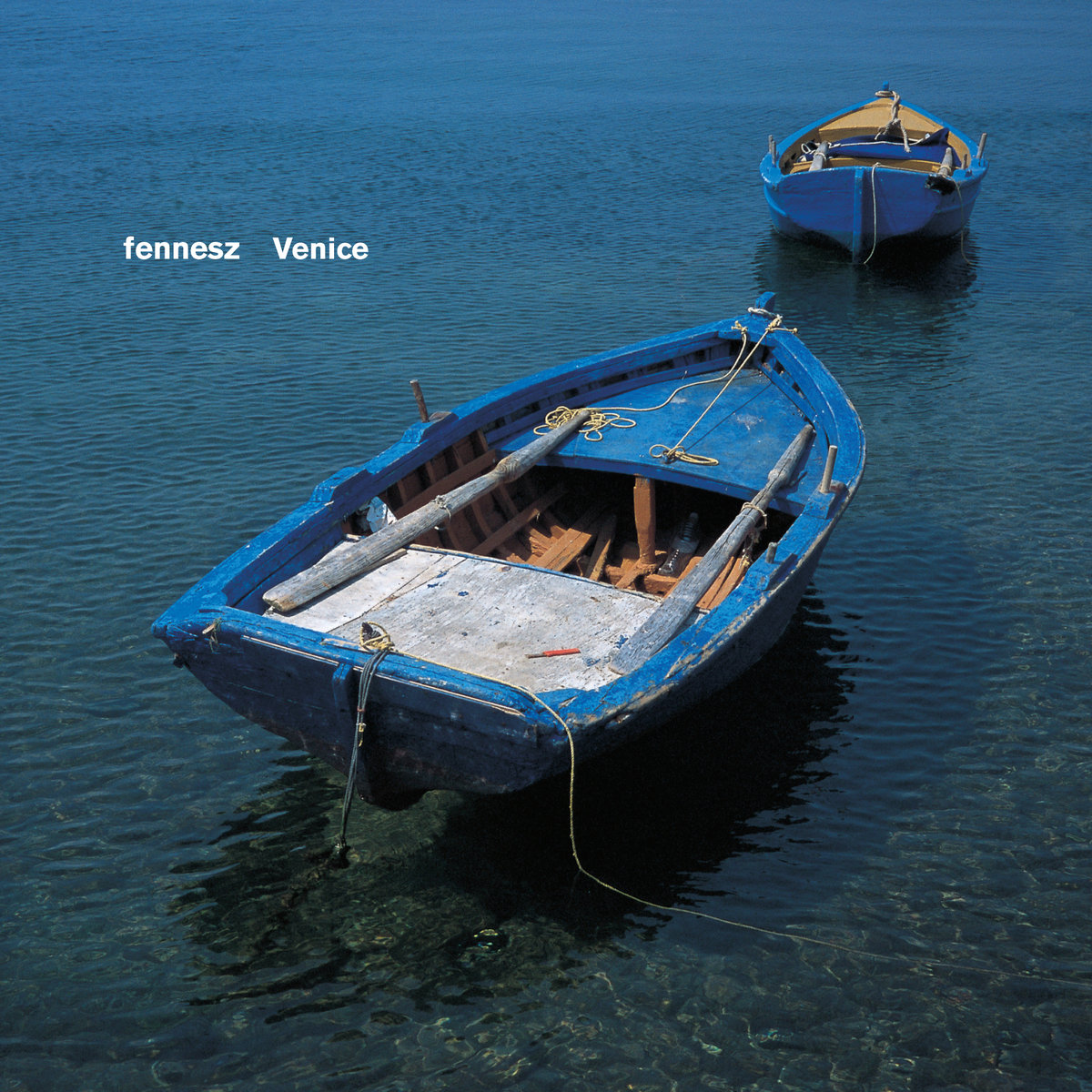Venice 20
Touch (CD, digital) ✖ Released: 08.2024 ✖ Buy: Bandcamp
The 20th anniversary re-issue of Fennesz’s best-selling ‘Venice’, originally released in 2004. Remastered by Denis Blackham, with new and extra tracks not on the previous CD or vinyl versions. Included in the DVD-format edition is a booklet with texts by Fennesz himself, Denis Blackham and Jon Wozencroft, with unseen photographs from the original 2004 sessions. The booklet also reproduces David Sylvian’s original handwritten lyrics for ‘Transit’.
- Rivers of Sand
- Chateau Rouge
- City of Light
- Onsra
- Circassian
- Onsay
- The Other Face
- Transit
- The Point of It All
- Laguna
- Asusu
- The Stone of Impermanence
- Sognato di Domani
- Tree
- The Future Will Be Different
Jon Wozencroft writes: “The edge of days. The early days of computers. I bought my first one in 1989, a Mac SE with a hard disk of 20mb and a screen not much bigger than A5, black and white of course. It cost £2000 but the argument was, it would save on typesetting and yes it did, up to a point. Until one morning just three years later, I switched it on and it blew up in a puff of an electrical surge and that was that – oh shit, an ex-computer, its burnt-out hard disk fit only for the skip.
By the early 90s, Apple had introduced its first range of laptops, the “Powerbook” series, but I was having none of that incendiary plastic and instead opted for the “Duo” which was a convenient hybrid between laptop and desktop, mostly because there wasn’t a problem with the absence of a floppy-disk drive and better still you could use a SyQuest disk for larger file back-ups. There was no internet at this point unless you were in the top flight, but in 1993/94 you could feel music was becoming decidedly more immaterial and abstracted in anticipation of what was around the corner.
Laptop music starts around this time and straight away it’s a marriage between punk dissidence and technology. Aphex Twin might have been the headliner of this move but in essence it not only enabled everyone to save on artwork and printing costs, it meant that recording studios and live performance were no longer such financial barriers. In other words, a paucity of money no longer inhibited expression. You could blast out. For a while at least.
It’s difficult to imagine now, 30 years later, that the mid-90s were a point of utter musical and performative transformation. The technology was seen as a form of revenge against analogue hierarchies and the first example of the WFH (working from home) change that would really take hold during the Covid years, 20 years later. That however is a separate subject.
We had close associations with the formation of Mego. Rehberg and Bauer made a series of essential CDs with us in this period, to say nothing of the impact of Ryoji Ikeda’s “+/–“ which invented the glitch classification. Errors were made musical and into this slipstream came a long-term relationship with Christian Fennesz who brought melody, harmony and something essentially romantic to this configuration. What that ‘romanticism’ is, now or then, is an essential part of the allure of Fennesz’s sound.
Following the impact of ‘Endless Summer’, ‘Venice’ was the lynchpin of this development. It’s prescient how swift the change came from the Beach Boys’ inspired bittersweet idealism, to ‘Venice’s’ more reflective turn… It evolves over time, an epiphany of a new world that is still in formation and this other world dying almost imperceptibly, because digital has always been in formation by its very nature. 'Venice'is a classic reminder of a certain grace and harmonic possibility, a sonic reminder at a crucial crossover point. One year later, broadband, and hot on the hottening heels, the iPhone.
‘Black Sea’, ‘Mahler Remix’, ‘Agora’, many others – and soon ‘Mosaic’ – document the essential curve from the early idealism and rapture of 20 years ago. The movement is remembered and celebrated in ‘Venice 20’. It is as contemporary a message as ever.” (JW)





